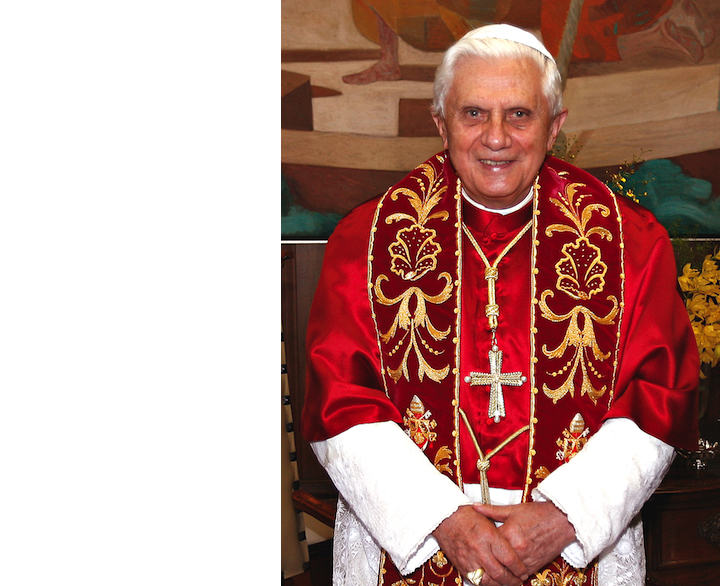Catholic League president Bill Donohue comments on an article written by Pope Emeritus Benedict XVI:
Pope Emeritus Benedict XVI has released a lengthy essay on the roots of clergy sexual abuse that is illuminating and courageous. It is illuminating because he shows how forces inside and outside the Church came together to create the problem, and it is courageous because he speaks the truth about matters that are already causing an uproar.
Benedict is no stranger to this subject. He previously condemned the “filth” in the Church that allowed for the scandal, and he did more to remove miscreant priests than either his predecessor or successor. He defrocked some 800 priests, including the notorious Father Marcial Maciel Degollado. Now he tackles the issue again, this time with a blend of sociological and theological observations that are profound.
The Pope Emeritus starts with a macro sociological perspective, one that places the abuse scandal in social context. It is simply impossible to understand what happened, he says, without referencing the force of the sexual revolution.
It is not a coincidence that sexual abuse flourished in the Church at the same time that celebrations of sexual libertinism flourished outside the Church. The latter helped set the stage for the former. It was the triumph of moral relativism—the denial of moral absolutes—that helped to cripple the Church.
Benedict puts his finger on a harsh reality: Dissent in the Church peaked at the same time that the scandal unfolded. Catholic moral theology, which was always grounded in natural law, was abandoned in exchange for a more relativistic approach, one that denied the existence of evil. This was taught in the seminaries at the time. Not only that, but books by Benedict were censored.
When pornographic films are shown to seminarians, and a gay subculture is tolerated, Benedict notes, it is hardly surprising to learn that sexual misconduct will grow by leaps and bounds. “In various seminaries homosexual cliques were established,” he writes, “which acted more or less openly and significantly changed the climate in the seminaries.” The climate that emerged was toxic.
At bottom, Benedict stresses, the scandal is rooted in a crisis of faith. When the very existence of God is questioned, and when moral certainty dissipates—even with regard to foundational principles—then mere opinion becomes the new norm. This is a dangerous slope; it resulted in many sins, including priestly sexual abuse.
Some readers may think that Benedict exaggerates when he writes about pedophilia being seen as legitimate “only a short time ago.” But it was. Indeed, in some quarters, especially among intellectuals and celebrities, it still is. Recall that just recently Barbra Streisand justified Michael Jackson’s alleged sexual abuse of children.
“His sexual needs were his sexual needs, coming from whatever childhood he has or whatever DNA he has. You can say ‘molested,’ but those children [two of his alleged victims], you heard them say, they were thrilled to be there. They both married and they both have children, so it didn’t kill them.” Streisand subsequently walked back her statement.
“Why did pedophilia reach such proportions?” Benedict poses the question and then nails it with precision. “Ultimately, the reason is the absence of God.” Once that happens, evil can triumph.
He provides an example. A chaplain who sexually abused a girl altar server “always introduced the sexual abuse he was committing against her with the words, ‘This is my body which will be given up to you.'” If that is not evil, then the word has no meaning.
Benedict recognizes that the Church is a much better place today than it was at the height of the scandal. Reforms can and should be made, but he stresses the folly of trying to reinvent the Church. Indeed, he sees such proposals as the work of the devil. “The idea of a better Church, created by ourselves,” he says, “is in fact a proposal of the devil, with which he wants to take us away from the living God.”
What we need, Benedict argues, is greater respect for the Eucharist and the establishment of “habitats of Faith.” The appropriate corrective to sexual abuse, or any other plague on the Church, cannot be achieved absent a renewal of faith, grounded in eternal moral truths. Anything less will miss the mark.
Thank God we still have the seminal voice of Pope Emeritus Benedict XVI to guide us. He is indispensable.







